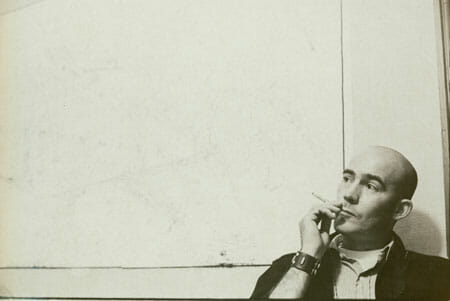Introducing Endless Mode: A New Games & Anime Site from Paste
Release Date: July 4
Director: Alex Gibney
Writer: Alex Gibney, Hunter S. Thompson (writings)
Cinematographer: Maryse Alberti
Starring: Hunter S. Thompson, Johnny Depp, Jimmy Buffet, Pat Buchanan, George McGovern, Jimmy Carter, Jann Wenner
Studio/Run Time: Magnolia Pictures, 118 mins.
My favorite thing about Alex Gibney’s entertaining documentary, Gonzo: The Life and Work of Dr. Hunter S. Thomspon, is that it makes me want to read what Thompson wrote. True to its name, the film trains its fair but reverent lens on the man’s exploits and writings, in roughly equal measure.
Since most of what I knew about Thompson’s life came after the fact and second hand, through his appearances on David Letterman and Terry Gilliam’s Fear and Loathing in Las Vegas, I’ve only recently discovered what a great writer he was. Johnny Depp reads his words engagingly in this documentary, but they’re better on the page where even his account of a 1972 presidential election, which dwells on historical footnotes and also-rans, crackles with wit.
To modern eyes, that account is also startlingly relevant, which may have inspired the film. Gonzo feels like a contemporary lament for the void left by Thompson’s suicide in 2006, an audible wish that the man had found a way to rekindle the passion instead of calling it quits.
The movie begins with a prescient essay Thompson wrote on September 11, 2001. “We are going to punish somebody for this attack,” he wrote, “but just who or what will be blown to smithereens for it is hard to say.” The film then pops back to Thompson’s heyday of the ’60s and ’70s when he was infiltrating the Hell’s Angels, running for mayor of Aspen, Colo. on the Freak Power ticket, and covering a presidential election for Rolling Stone. His adventures became the stuff of legend and formed the spine of his written work.
After making documentaries about Enron and Abu Ghraib (including the Oscar-winning Taxi to the Dark Side), Gibney is emerging as a chronicler of American public life, but he hasn’t yet developed a distinctive style of his own. In Gonzo, he recreates bits of Thompson’s history with reenactments that look like home movies. They’re fake, but sometimes they’re married to real audio recordings, creating a sort of confusion that was also a hallmark of Thompson’s work. He famously reported that candidate Edmund Muskie was rumored to be under the influence of a powerful narcotic called ibogaine, but he omitted the fact that he’d started the rumor. However, I’m not sure we need Gibney to dabble in Gonzo documentation as much as we need him simply to relay the stories.
He’s managed to get some great interviews with people who Thompson supported, skewered, or supported then skewered: Jimmy Carter, Pat Buchanan, George McGovern. Thompson’s truth-telling about the ’72 election sprang from an idealism that could bear both hope and despondency as its fruits. Gary Hart calls such rigid expectations naive because politics is the science of compromise, and I suppose Gibney’s belief that our generation needs a Hunter S. Thompson may be just as naive, since our world is a vastly different place. Fewer hitchhikers. More media consultants. And so many weblogging firebrands and editorializing pundits that we could almost stir them with a stick.
We don’t need people to do precisely what Thompson did, because they’re doing it. (Perhaps not as well, and with decidedly fewer intoxicants.) But we still need people to find the holes in the system, slip through, and pry them open from the other side. Thompson’s erratic, drug-addled demeanor may have obscured that singular talent, and while Gonzo is honest about his excesses and failures, it’s also an important protector of his deserved legacy because it shows respect for his work.
